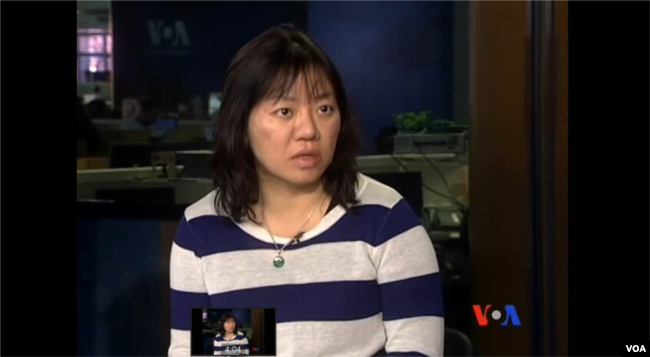Hanoi is set to implement a new decree on December 1 which seeks to to tighten control over the news media even more. Under the decree, anyone sharing information that authorities deem harmful but not serious enough for a criminal penalty could face steeper fines and a longer, 12-month suspension.
With this, independent journalists, such as Pham Doan Trang, who was jailed earlier this month, are at greater risk of arrest.
- Title: Vietnam Seeks to Further Limit Press
- Publish Date: October 14, 2020
- Publisher: Voice of America
Excerpt:
Vietnam’s journalists and social media users face a new obstacle to independent reporting through a government decree that imposes harsh penalties for sharing information deemed harmful to the country.
Observers and rights activists see the decree, due to go into effect Dec. 1, as part of Hanoi’s increasing efforts to tighten control over the news media.
Since January, Vietnam has arrested about 20 journalists, publishers and social media users over critical content; demanded that Facebook agree to censor “anti-state” posts; issued a one-month publishing ban on the news website Phu Nu Online over its investigations into environmental damage; and, last week, arrested prominent blogger and democracy activist Pham Doan Trang.

Under the latest decree, signed Oct. 7 by Prime Minister Nguyen Xuan Phuc, anyone sharing information that authorities deem harmful but not serious enough for a criminal penalty could face steeper fines and a longer, 12-month suspension.
The law previously allowed for fines of up to 100 million Vietnamese dong (US $4,300) and suspensions of up to six months. The most severe order was a three-month ban the Ministry of Information and Communications imposed on news outlet Tuoi Tre Online in July 2018. The ministry accused the outlet of disseminating false news over its reporting on the president’s comments on a protest law.
Provincial people’s committees and local authorities, along with the Ministry of Information and Communications and the Press Authority, will have power to issue the penalties.
Appeals are allowed, but administrative fines in Vietnam have to be paid within 10 days.
“The Vietnamese press is not the same as overseas. The country is governed by one-party rule. It does not accept pluralism or multiparty. It does not accept criticism,” Vo said. “They explicitly and unequivocally declare that the press is a propaganda tool of the party and state.”
Vietnam has a poor record for free media, ranking 175 out of 180 countries, where 1 is the most free, on an annual index compiled by media watchdog Reporters Without Borders (RSF).
Journalists at state-run and state-approved outlets have to register and meet certain requirements, such as having a press card and press activity permit.
But independent journalists, such as Pham Doan Trang, who was jailed earlier this month, are at greater risk of arrest.
The journalist’s Oct. 6 arrest “is another leap forward into an outright crackdown by the Communist Party of Vietnam,” Daniel Bastard, the head of RSF’s Asia-Pacific desk, told VOA Vietnamese.
“RSF is appalled by the arrest of Pham Doan Trang, who was honored with our Press Freedom Award for Impact exactly one year ago. Her only crime was to provide her fellow citizens with trustful information and enable them to fully exercise their rights,” Bastard said.
Pham, an outspoken democracy activist and author, was arrested on anti-state propaganda charges, police and state media said.
Rights groups condemned the arrest, which took place hours after annual U.S.-Vietnam human rights talks, and they warned that the blogger risked torture in custody.
Pham, who was arrested at an apartment in Ho Chi Minh City, is accused of “making, storing, distributing or disseminating information, documents and items against the Socialist Republic of Vietnam,” To An Xo, a spokesperson for the Ministry of Public Security, said.
The blogger writes about legal issues, citizen rights and politics, and in September he released a joint investigative report into a government attack on a village that was the center of a land dispute.
The U.S. State Department expressed concern over Pham’s arrest.
“Her detention could impact freedom of expression in Vietnam. We urge the Vietnamese government to ensure its actions and laws are consistent with Vietnam’s international obligations and commitments,” the State Department said in a statement sent to VOA via email.
Download: